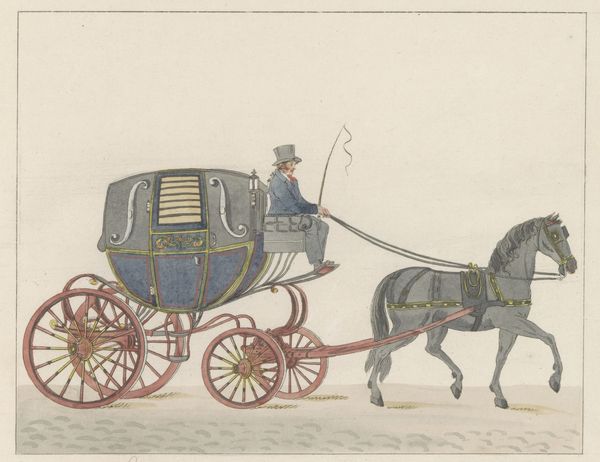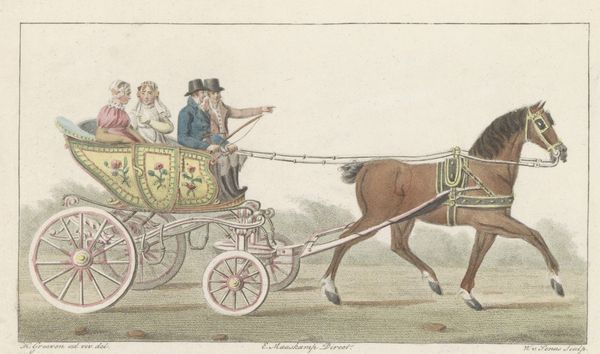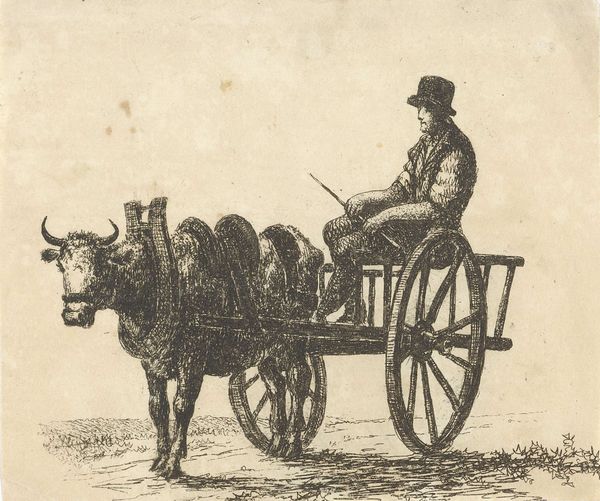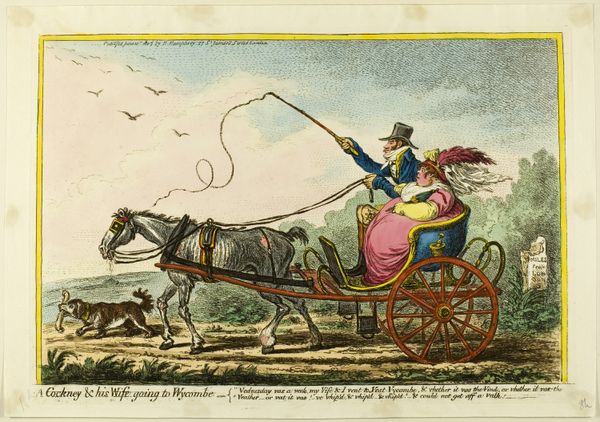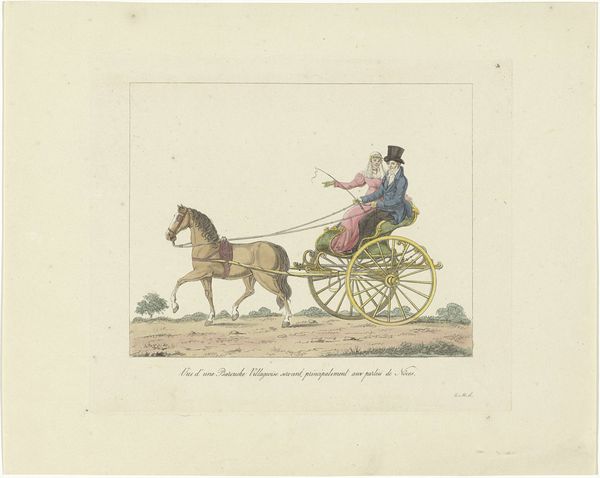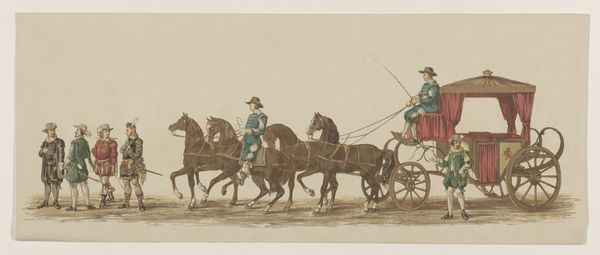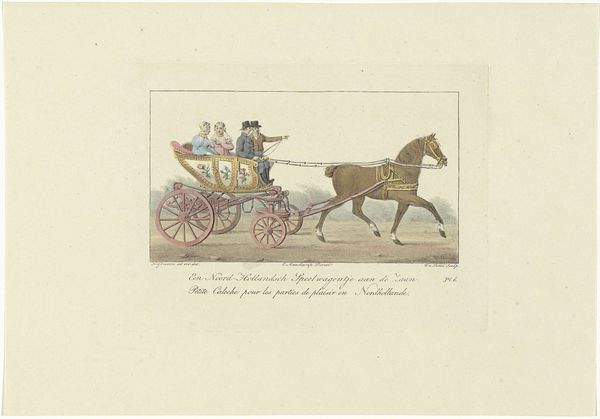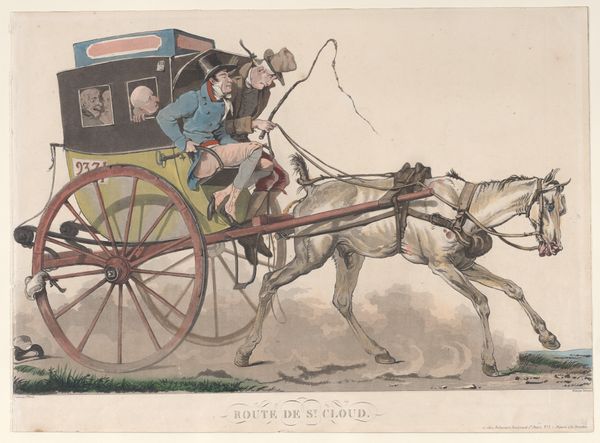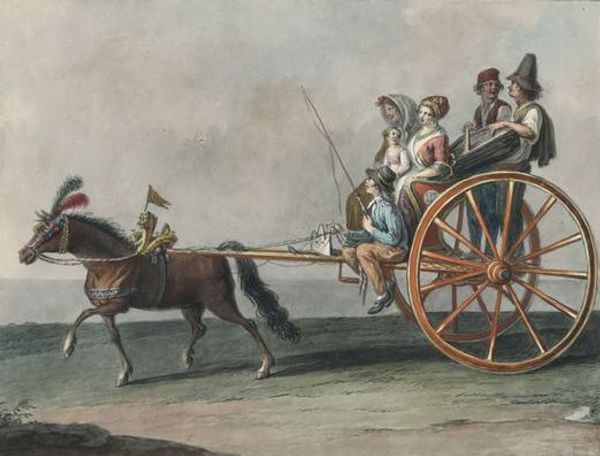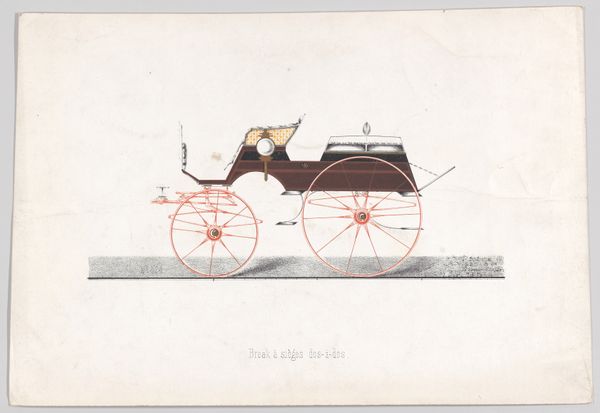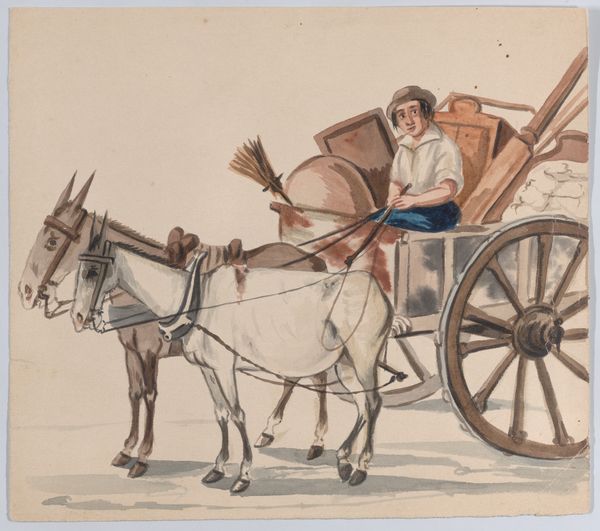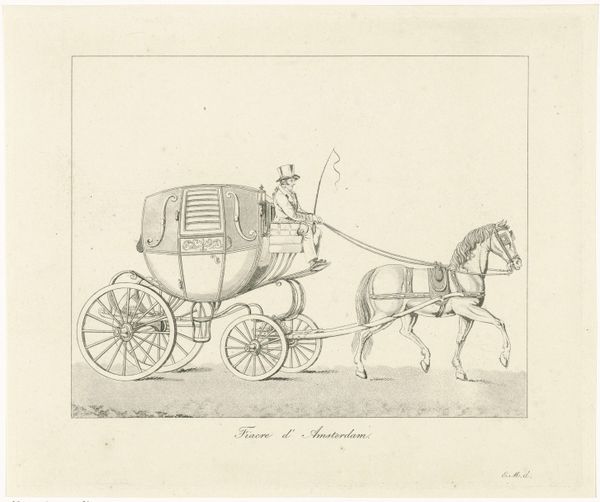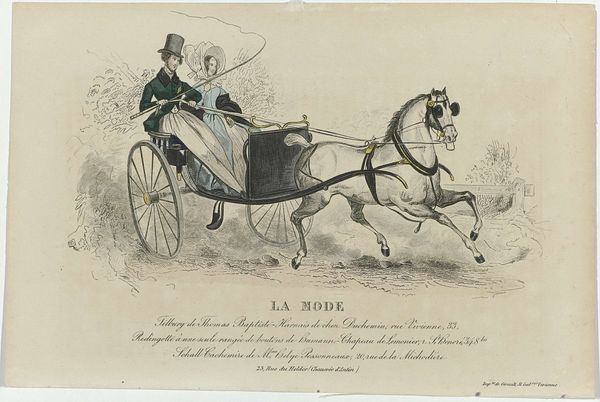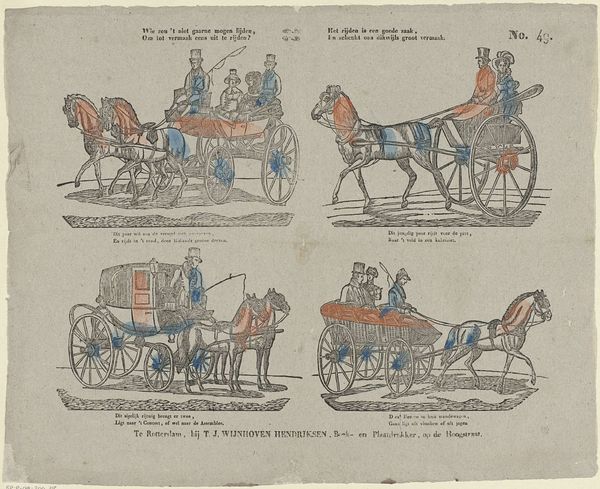
drawing, print
#
portrait
#
drawing
# print
#
landscape
#
watercolour illustration
#
genre-painting
Dimensions: height 188 mm, width 225 mm
Copyright: Rijks Museum: Open Domain
Roelof van der Meulen created this hand-colored etching of a ‘Hollandse sjees’, or chaise, around 1825. Van der Meulen used etching, a printmaking technique, to create this image, which involves drawing an image into a wax ground on a metal plate, and then bathing it in acid. The final print is then colored by hand. Etchings like this one were a popular medium for capturing scenes of daily life. The choice of etching is particularly significant because it allows for the mass production of images. In that light, consider the labor involved in creating these prints, not just by the artist but also by those involved in the printing process. The horse and carriage are objects that are inextricably linked to wealth and status. The artist underscores the commodification of everyday life. This print is an insightful reflection on the modes of production and consumption in 19th-century Netherlands.
Comments
No comments
Be the first to comment and join the conversation on the ultimate creative platform.
